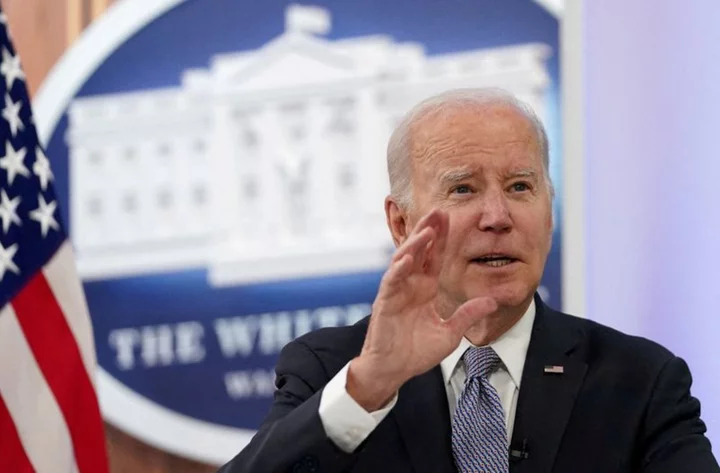WASHINGTON (AP) — International students attended U.S. universities in surging numbers last year, rebounding from a pandemic slump with the help of a 35% jump in students coming from India, according to a study released Monday.
Overall, the number of international students in the U.S. grew by 12% in the 2022-23 academic year, the largest single-year increase in more than 40 years, according to findings from the State Department and the nonprofit Institute of International Education. More than 1 million students came from abroad, the most since the 2019-20 school year.
“This reinforces that the U.S. remains the destination of choice for international students wishing to study abroad, as it has been for more than a century,” said Allan E. Goodman, CEO of the Institute of International Education.
American colleges enrolled nearly 269,000 students from India, more than ever and second only to China. Most came for graduate programs, often in science, technology and business.
“The U.S. maintains a strong relationship with India on education, which I think is getting even stronger and even more connected,” said Marianne Craven, the State Department's acting deputy assistant secretary for academic exchange.
China still accounted for the most foreign students in the U.S. with 290,000, but its numbers decreased for a third consecutive year.
It reflects a gradual shift. After years of booming demand from China, interest has ebbed amid chilly international relations and increased competition from universities in the United Kingdom and Canada. Officials behind the new study also blame prolonged travel restrictions in Asia during the pandemic.
At the same time, U.S. universities have focused on recruiting in India, hoping to tap a growing population that the United Nations predicted would overtake China as the world's largest this year. Students from India now outnumber those from China in 24 U.S. states, including Illinois, Texas and Michigan, which rank among the top destinations for international students.
For the second consecutive year, America's graduate programs were the main attraction for international students, the study finds. Graduate enrollment grew by 21%, while undergraduate numbers ticked up 1%. It reverses a trend from the previous decade, which saw undergraduates come in larger numbers.
Much of last year's growth is credited to math and computer science programs, which attracted more students than any other subject and saw a 20% boost in enrollment over the previous year. Engineering and business followed behind. Taken together, those three fields account for more than half of all international students in the United States.
The surge nearly brings international numbers back to their pre-pandemic highs, with a peak of almost 1.1 million students in 2018. Enrollment fell precipitously over the following two years as COVID-19 stifled academic exchange.
The rebound appears to be continuing, with an 8% increase in international enrollment this fall, according to a smaller survey meant to give a snapshot of recent trends.
Overall, international students made up just 5.6% of all college students in the 2022-23 year, but they play an outsize role in U.S. higher education. University leaders say they're important for global exchange, and they're also important for revenue — international students are usually charged higher tuition rates, effectively subsidizing college for U.S. students.
Behind China and India, nations sending the most students to the U.S. were South Korea, Canada, Vietnam, Taiwan and Nigeria. Last school year saw a record number of students come from Bangladesh, Colombia, Ghana, India, Italy, Nepal, Pakistan and Spain.
While more students come from abroad, many colleges are struggling to attract students at home. Total enrollment across all colleges has stayed in a slump in the wake of pandemic decreases, and freshman enrollment decreased by 3.6% in fall 2023, according to a separate study by the National Student Clearinghouse.
___
The Associated Press education team receives support from the Carnegie Corporation of New York. The AP is solely responsible for all content.









